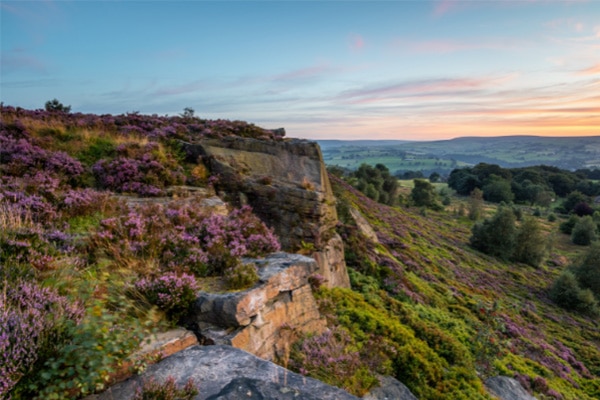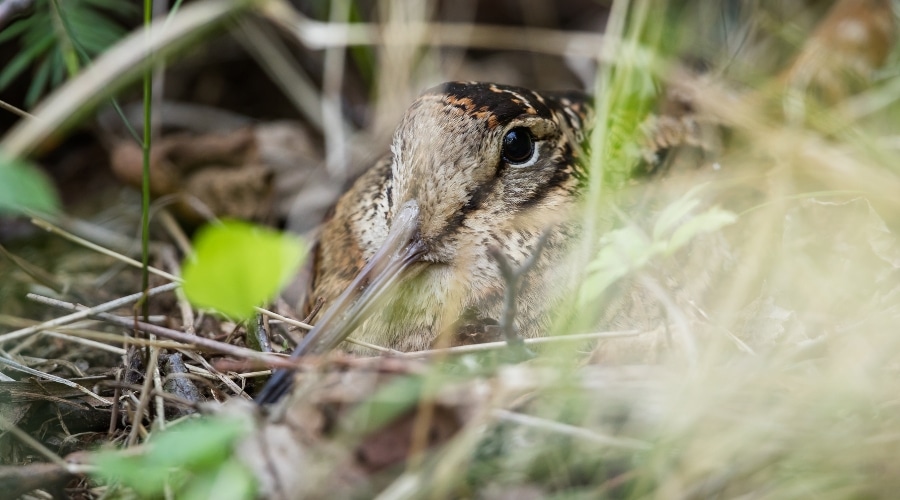
The Moorland Chorus
Transport yourself to stunning Calderdale with the Moorland Chorus, capturing the sounds of dawn breaking on grouse moor teeming with life.
Get information on the legal shooting season for mammals and birds in the UK.
Learn about our current conservation projects and how you can get involved.
Comprehensive information and advice from our specialist firearms team.
Everything you need to know about shotgun, rifle and airgun ammunition.
Find our up-to-date information, advice and links to government resources.
Everything you need to know on firearms law and licensing.
All the latest news and advice on general licences and how they affect you.

The woodcock is a magnificent quarry species. By taking part in a GWCT and BTO survey, you can actively contribute to its conservation.
Steeped in history and tradition, the story and ecology of the wily woodcock makes for a great read.
Every year a healthy population of 1.5 million woodcock migrate to the UK to overwinter in warmer climes. However, our smaller resident population is not doing as well.
The Birds of Conservation Concern 2015 report added the species to the red list due to severe declines in their breeding range.
The GWCT and BTO coordinate and run a national breeding woodcock survey every ten years. The first took place in 2003 and then again 2013. This year will see the third survey undertaken.
The survey provides population estimates which will allow an assessment of its size as well as localisation.
The findings will go a long way to helping produce any future management policies for woodcock.
You could be part of this vital conservation work by subscribing as a volunteer counter of woodcock in your area.
The survey requires volunteers to visit one or more 1-km squares all around the UK and count male roding woodcock by recording each flypast seen or call heard during a 75-minute visit at dusk.
Volunteers are asked to make a first reconnaissance visit in April to the sites they wish to count to find the best vantage point for counting and / or flag up any access issues.
For the main survey, volunteers are then required to make three counting visits of their allotted square between 1 May and 30 June 2023.
Each visit must be at least one week apart and should start 15 minutes before sunset and last for a total duration of 75 minutes.
In order to gather information about the breeding range of woodcock it is important that data is logged for squares where no woodcock were recorded, too.
More survey resources and instructions, including woodcock call recordings, can be found here.

Transport yourself to stunning Calderdale with the Moorland Chorus, capturing the sounds of dawn breaking on grouse moor teeming with life.

BASC has committed to contributing £75,000 towards Natural England’s hen harrier recovery work over the next three years.
BASC visited Reaseheath College to teach students about installing duck nest tubes, which can increase mallard breeding success rates to 97 per cent.
Sign up to our weekly newsletter and get all the latest updates straight to your inbox.
© 2023 British Association for Shooting and Conservation. Registered Office: Marford Mill, Rossett, Wrexham, LL12 0HL – Registered Society No: 28488R. BASC is a trading name of the British Association for Shooting and Conservation Limited which is authorised and regulated by the Financial Conduct Authority (FCA) under firm reference number 311937.
If you have any questions or complaints about your BASC membership insurance cover, please email us. More information about resolving complaints can be found on the FCA website or on the EU ODR platform.
This website uses cookies so that we can provide you with the best user experience possible. Cookie information is stored in your browser and performs functions such as recognising you when you return to our website and helping our team to understand which sections of the website you find most interesting and useful.
Strictly Necessary Cookie should be enabled at all times so that we can save your preferences for cookie settings.
If you disable this cookie, we will not be able to save your preferences. This means that every time you visit this website you will need to enable or disable cookies again.
This website uses Google Analytics to collect anonymous information such as the number of visitors to the site, and the most popular pages.
Keeping this cookie enabled helps us to improve our website.
Please enable Strictly Necessary Cookies first so that we can save your preferences!
More information about our Cookie Policy